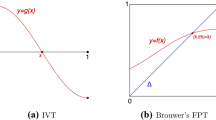Summary
Let <InlineEquation><EquationSource=”tex”>G</EquationSource></InlineEquation> be a finite abelian group, and let <InlineEquation><EquationSource=”tex”>n</EquationSource></InlineEquation> be a positive integer. From the Cauchy-Davenport Theorem it follows that if <InlineEquation><EquationSource=”tex”>G</EquationSource></InlineEquation> is a cyclic group of prime order, then any collection of <InlineEquation><EquationSource=”tex”>n</EquationSource></InlineEquation> subsets <InlineEquation><EquationSource=”tex”>A_1,A_2,\ldots,A_n</EquationSource></InlineEquation> of <InlineEquation><EquationSource=”tex”>G</EquationSource></InlineEquation> satisfies <InlineEquation><EquationSource=”tex”>\bigg|\sum_{i=1}^n A_i\bigg| \ge \min \bigg\{|G|,\,\sum_{i=1}^n |A_i|-n+1\bigg\}.</EquationSource></InlineEquation> M.~Kneser generalized the Cauchy--Davenport Theorem for any abelian group. In this paper, we prove a sequence-partition analog of the Cauchy--Davenport Theorem along the lines of Kneser's Theorem. A particular case of our theorem was proved by J.~E. Olson in the context of the Erdős--Ginzburg--Ziv Theorem.
Similar content being viewed by others
Author information
Authors and Affiliations
Rights and permissions
About this article
Cite this article
Grynkiewicz, D. On a partition analog of the Cauchy-Davenport theorem. Acta Math Hung 107, 161–174 (2005). https://doi.org/10.1007/s10474-005-0185-z
Issue Date:
DOI: https://doi.org/10.1007/s10474-005-0185-z



